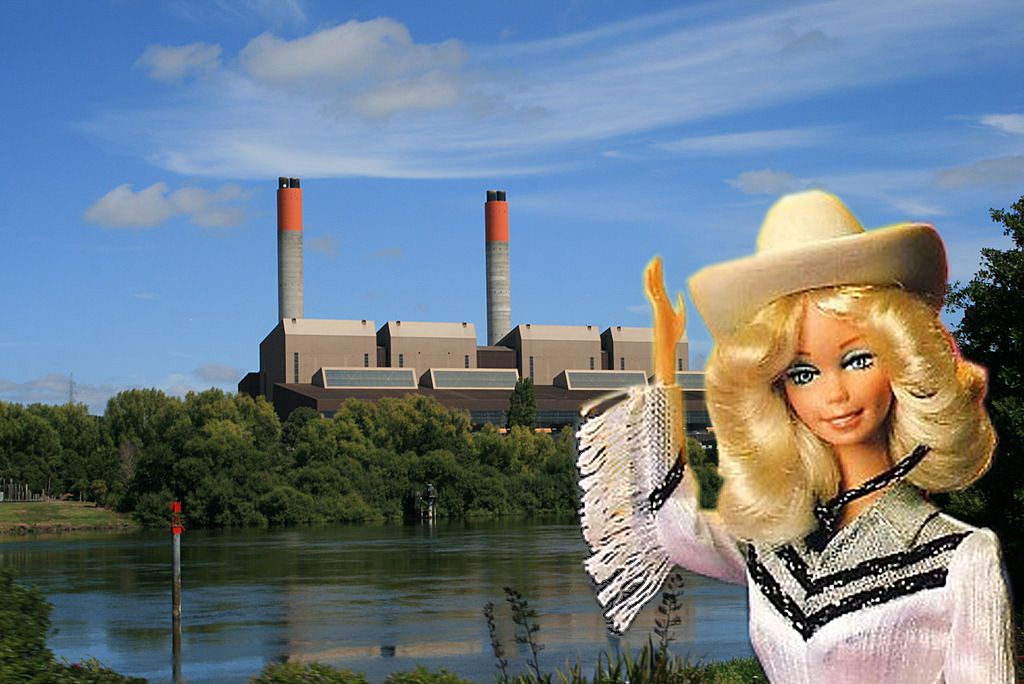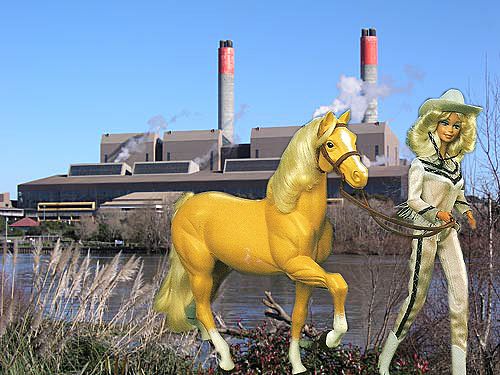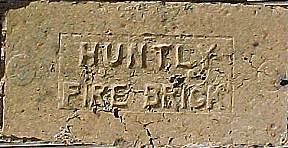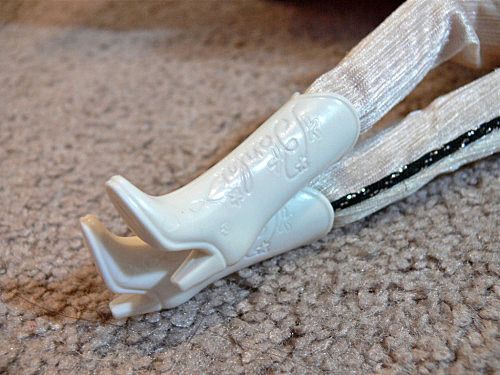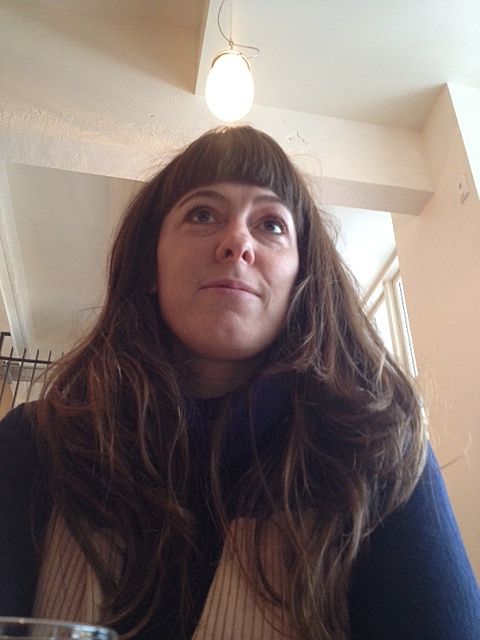The Ballad of Western Barbie
When Megan Dunn was seven, she, her mum and Western Barbie decamped to Huntly for a little while. Here, she remembers six months of smokestacks, churches, communion, and the things we take a long time to recognise.
Two things happen in Huntly: something and nothing. Sometimes it’s hard to tell which is which.
At the age of seven I lived in the brick presbytery next to the brick church and the Catholic School on Main Street. I watched Olivia Newton John in Grease at the local cinema, but otherwise Huntly seemed untouched by glamour and I was not happy to be there. My mother and I had decamped from Auckland to the presbytery to live with my grandparents, who kept house for the priest.
Don’t worry. It’s not one of those stories. The priest was polite and sweet, like the scones he ate after church. Inside the presbytery hallway a statue of Mary stood on a polished wooden table. Mary had cold feet. So did my mother. We were in Huntly because of Mum’s cold feet. She had left Bruce, a truck driver, and the father of my half-brother. Mum had an epiphany after the birth of my half-brother. The epiphany was that she didn’t love Bruce and she wasn’t sure she loved my brother either.
Western Barbie accompanied us on our exodus to Huntly. Barbie brought her palomino, Dallas, along for the ride. We had left Auckland in a hurry and Western Barbie only had the outfit she came in: a white jumpsuit with tassels that upon reflection was quite Liberace. She took her accessories to Huntly too; a blue autograph stamp and a set of hairbrushes. Western Barbie had a lever on her back. If I pushed it down, she’d wink. As a cowgirl, I like to think Barbie was in a better position to deal with Huntly. We attended Catholic school together as Barbie and I were close friends and she’d never leave a girl in a crisis. Only for a man and a good time.
At the presbytery, Mum and I slept in single beds in an open-plan bedroom next door to my grandparents. In the evenings, Western Barbie took long baths in her doll-sized turquoise tub and flushed her pink doll-sized loo. Dallas grazed on a patch of wild floral carpet. Barbie had loved and left a man too. When we lived with Bruce, Barbie had been seeing Action Man. Barbie and Action Man had known one another’s bodies in the nude, but their plastic arms and legs weren’t built right for cuddling. Sex was accompanied by the cold disjointed sound of clacking. Once they rode around Bruce’s house in Action Man’s tank. Later, they would drink doll-sized glasses of wine. Maybe they talked of war, but I doubt it. Action Man, like Bruce, kept to himself.
We were only in Huntly for six months, but I remember that time as having the long drawn-out qualities of a soap opera. Not so much as a tumbleweed ambled along Main Street. Huntly seemed inhabited by the second-hand clothes display mannequins in the window of the Salvation Army store. One pub. One cinema: Olivia Newton John’s wholesome smile on the fading poster by the door. At least church every Sunday was a social occasion. I slotted the autograph stamp onto Barbie’s hand, just in case just met any of her fans.
“This is the body of Christ.”
I opened my mouth and the priest placed a pale wafer on my tongue.
The body of Christ dissolved.
“What does it taste like?” Barbie asked.
“Nothing,” I said.
“Shhh.” Nana put her finger to her lips.
The priest moved in front of the altar in his lapping white robes. Above his head was a brass Jesus nailed to a cross and above Jesus was a round window. Clouds chugged past.
The priest said: “Let us give thanks to the Lord our God.”
The congregation answered: “It is right to give him thanks and praise.”
The collection basket was passed backwards along the pews. People dropped coins into its wicker rim. Inside the basket spare change jingled and rang out like notes from a tambourine. After church, the congregation gathered outside on the steps. Many people stopped and talked to the priest as though he was a pop star. They shook his hand. “Thank you for the sermon today, Father.”
On Sunday afternoons, Mum took long walks. Barbie saddled up Dallas and we trailed along. We crossed the rusted railway bridge to the other side of town. The trains seemed infrequent, the business they were designed to do long overtaken. “Whoa!” Barbie pulled on Dallas’s reins. We stopped mid-way across the bridge. Mum stared down at the slow-moving Waikato River. The water was silver where the light struck it, like Western Barbie’s tassels. But most of the time it was just brown and murky. Barbie and I surveyed the Huntly Power Station; its two red turrets poked up into the sky. The steeple of the church also reached into the sky. But the chimneys of the Power Station reached higher.
“I don’t believe in God,” Western Barbie said, and I always had a lot of respect for her point of view. Barbie was made in a factory. The small of her back was embossed with a copyright logo and the message: “Mattel Inc.” Barbie had met her maker, and she told me there had been nothing religious about it. “My head spun round and round in a rotomould. It was dark. Something sucked me out of the darkness. I heard a pop.” She described her journey along the assembly line on a conveyor belt: “the women wore little blue hats on their heads that looked like shower caps. They slotted my arms and legs to my body. Then they put on my head.” Her two-tone nylon hair was stitched into her scalp by a sewing machine.
“Did it hurt?”
“A little,” Barbie said. “But it was worth it.”
I swept the hairbrush through her hair; then pressed down the lever on her back.
Barbie was made in Taiwan, but her wink was more or less universal. A team of Mattel employees had taken swatches of fabrics for her white jumpsuit and drawn the prototype for her white cowboy hat and matching cowboy boots. Their designs were inspired by the Country and Western revival that swept across America in the late 70’s and early 80’s: Western Barbie originally came with several photographs (of herself). I assume she was meant to be a famous Nashville singer; the autograph stamp supplied her signature. By the time we arrived in Huntly, Barbie didn’t have any photographs left. I can only hope she gave one to Action Man when they said “so long.”
*
The afternoon sun melted into the river and the Huntly Power Station chugged smoke into the sky. Barbie tugged on Dallas’s reins. By the time we reached the presbytery, sandflies studded the light outside the back door. Western Barbie kicked off her cowboy boots and sat on the edge of her doll-sized double bed and put her head in her hands.
“I wonder what you’ll think of me when you’re older?"
“What do you mean?”
“I wonder if you’ll judge me?”
“Don’t cry.”
“I just feel so alone.”
“But you’re not alone, I’m here. And Dallas too.”
*
A burst of white light: in my school photograph I’m buck-toothed and pig-tailed, dressed in a green tartan pinafore. Behind my head, an electric halo, some weird effect from the photographer’s flash. I didn’t have an autograph stamp, so my portrait remains unsigned.
*
“Forgive me Father, for I have sinned.”
The priest sat on the other side of the grille.
His palms pressed together in prayer; he turned a string of rosary beads between his fingertips.
The pew creaked as I reached for my sins.
“I swore at a boy in school.”
“I didn’t help Nana with the dishes.”
“I have thought bad things about my Mother.”
The priest told me to say a ‘Hail Mary.’ He closed the maroon curtain and the grille disappeared from view. The afternoon sun melted into the river and the Huntly Power Station chugged smoke into the sky.
*
Huntly was originally a Māori settlement called Rāhui Pōkeka, but became a military post during the Waikato Land Wars and a Pakeha settlement afterwards. The Scottish post-master in 1870, James Henry, named Huntly after his home town in Aberdeenshire. Henry used to press an old 'Huntley Lodge' stamp onto the town’s mail. The town still wears his autograph.
But long before James Henry stepped off the boat with the stamp from Huntley Lodge in his luggage, the Māori were using local coal or ‘waro’ for cooking. The population of Huntly expanded after commercial coalmining began around 1876. It’s been suggested that coal was one of the reasons why Pakeha invaded the Waikato in 1863. They wanted control of the rich seams that run throughout the area. At first coal was mined underground, until the bridge was built across the Waikato River in 1915. The bridge links East Huntly to West Huntly where the power station now resides; two chimneys stretching smoke into the sky.
The Huntly Power Station runs on local coal and gas and uses water from the Waikato River for cooling. Each of its red chimneys is 150 metres high. And each chimney contains two flues. The power station was built during the 70’s and 80’s, like me and Western Barbie. Another fact: geological areas rich in coal also produce strong clay. Huntly brick is a distinctive light brown and yellow used in the construction of many local buildings, including the presbytery.
*
One day at the presbytery, Granddad gave me a cardboard box full of Monarch caterpillars. I dropped leaves into their box. The caterpillars ate slowly. Their yellow stripes flexed when they turned round corners. In the morning, I realised the caterpillars had escaped from the box. They were inching across the wild floral carpet. I couldn’t see. I sat stranded on the edge of my bed looking at the doorway as though it was on the other side of the Waikato River; then I leapt and ran. One caterpillar got squished under the heel of my foot. Later at school, I held a boy down in the playground and jumped on his chest because I knew he was keeping a secret from me. The school was throwing me a leaving party.
One road goes in to Huntly and one road goes out.
White crosses line State Highway 1 higgledy-piggledy, and the skins of hedgehogs wear the tracks of worn tires. At the edge of Huntly, on the summit of Taupiri Mountain, the graves of Māori monarchs rest in the sacred ground of the cemetery where Te Putu’s pā once stood.
In my early twenties I passed through Huntly on Intercity buses and stared out at the dappled light on the Waikato River. I always looked for the Catholic Church and the presbytery. The bus pulled in for refreshments at a place called The Pit Stop. The passengers climbed down from the bus as though they were stepping out to have a look at a rodeo. Inside: toilet breaks, pies, caramel squares, things with pink icing and tea. The other passengers were the God-fearing people of New Zealand, keepers of the working class vigil, bearers of children. When we stopped in Huntly, time stopped. We all collected in the pocket of The Pit Stop like loose change.
*
In my early thirties on my first visit home from London, Mum and I packed up the car and went on a road trip. Mum drove, as I’ve never learned. I can’t ride a horse either. We got on well during our road trip, except for when I said: “Jesus Christ.”
“I don’t understand why you have to take the Lord’s name in vain.”
“It’s just something I say when I’m surprised.”
“Well, why can’t you say something else, like Elvis Presley?”
We stopped in Huntly at my request. There are photos of that journey too: me leaning against the door to the Catholic School, the light in my eyes, my long hair swept back. A shot of the presbytery: all that authentic Huntly brick. On the way out of town we took dual portraits in front of the Waikato River, the Huntly Power Station looming in the background like the Sphinx.
“You get over it,” Mum said, and I’ve always had a lot of respect for her point of view. At the age of thirty-one, Mum confessed she sometimes thought about jumping into the Waikato River. No one knew anything about post-natal depression back then. Mum realised she did still love my brother. We returned to Auckland and my grandparents helped us get set up in a flat.
Western Barbie saddled up Dallas and rode off into the sunset. Either that or she is packed away in a box. Mum still believes in God; I’m still lapsed. But when times are tough or I’m afraid, I pray. It’s been a long time since my last confession. A shame, as I’ve always had a knack for it and these days my sins are better too. Sometimes, I’m still plagued by a lack of charity: I’ve thought bad things about my mother.
*
Spin me round and take my top off. There’s a lever on my back. Push it and I just might wink, but only if I’m in the mood.
